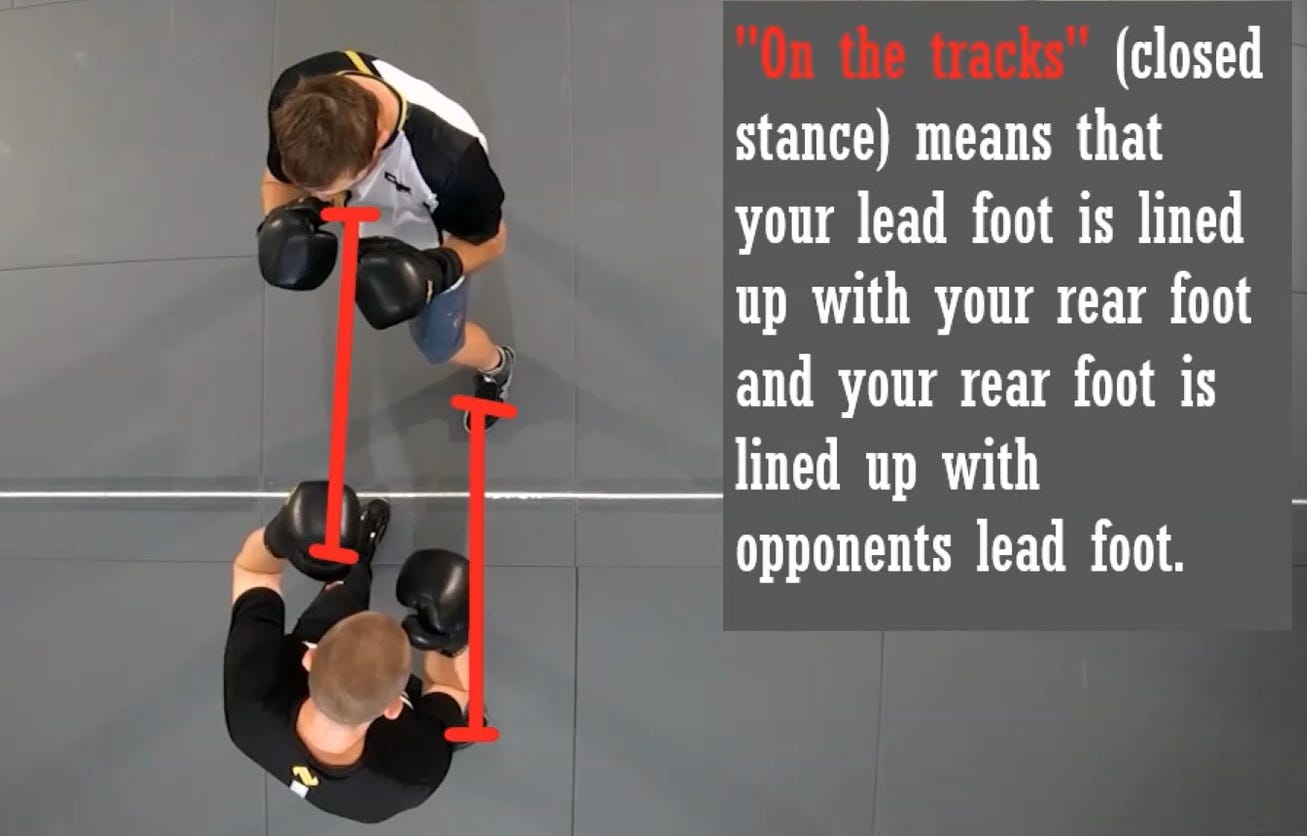🛠️MMA Tactical Tool Box: Study of Slips in Combat Sports
Positions in striking as as well as slipping.
Distance
There are 2 distances used in MMA- Borders and the Pocket.
Borders
Borders is the distance where if both fighters extend lead hands, then they will be able to are able to touch knuckle to knuckle. This is the extended distance necessary in mma since takedowns are a factor. It’s called borders since its one step away from either fighter being able to low kick, thus the fighter has to determine when cross the “border”.
The pocket is the fight zone. This is the distance in a fight where both fighters can hit each other. Any strike or takedown attempt is available here and its very dangerous to hang around in this distance without the proper mechanics and understanding of the three “angles” from this distance.
Pocket Angles
There are three angles within the pocket: on the tracks, on the fence, squared up.
“On the fence” means the fighter’s lead foot is lined up with their opponent’s lead foot. The one that achieves this position forces the opponent to turn towards them.
“Squared up” means the fighter has their lead foot pointed towards the opponents crotch. The opponent is extremely off balanced from this position since they are square in relation to the fighter.
“Squared off” and “On the fence” are two angles that are mainly used for exiting a striking exchange. Slipping doesn’t normally occur in these positions since the opponent has to readjust their position in order to face the fighter.
“On the tracks” is the angle where where slipping occurs in the pocket. This is the angle where both fighters are facing each other. In terms of foot position, in a closed stance matchup, the fighters lead foot is lined up with the opponent’s rear foot and the rear foot is lined up with the opponent’s lead foot. In a open stance matchup, the fighters lead foot is lined up with the opponent’s lead foot and the rear foot is lined up with the opponent’s rear foot. There are two different positions from this angle: Rear foot position and the lead foot position.








